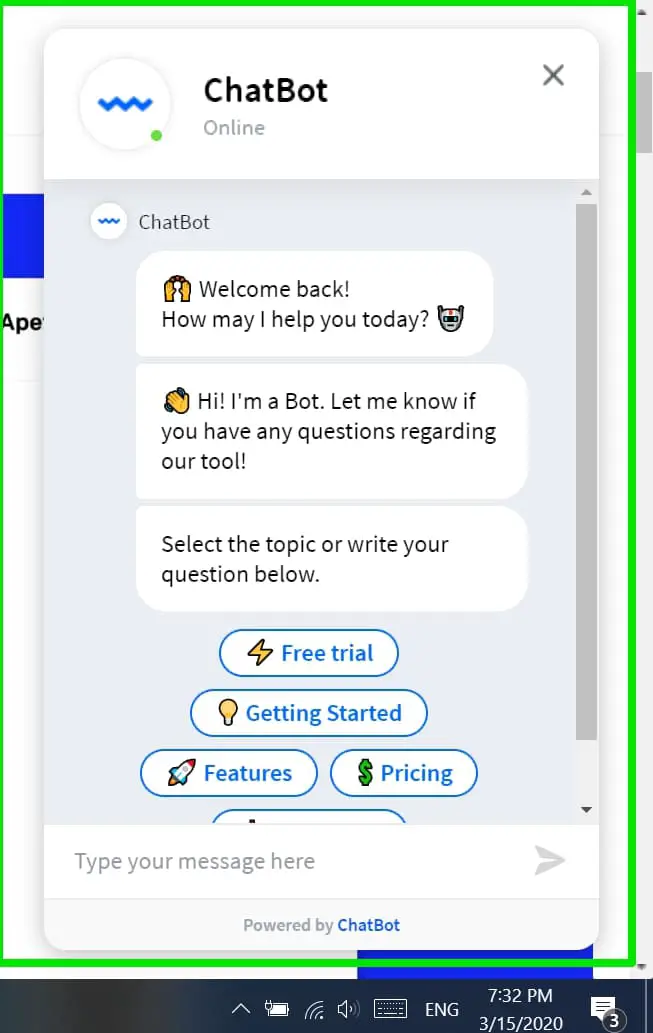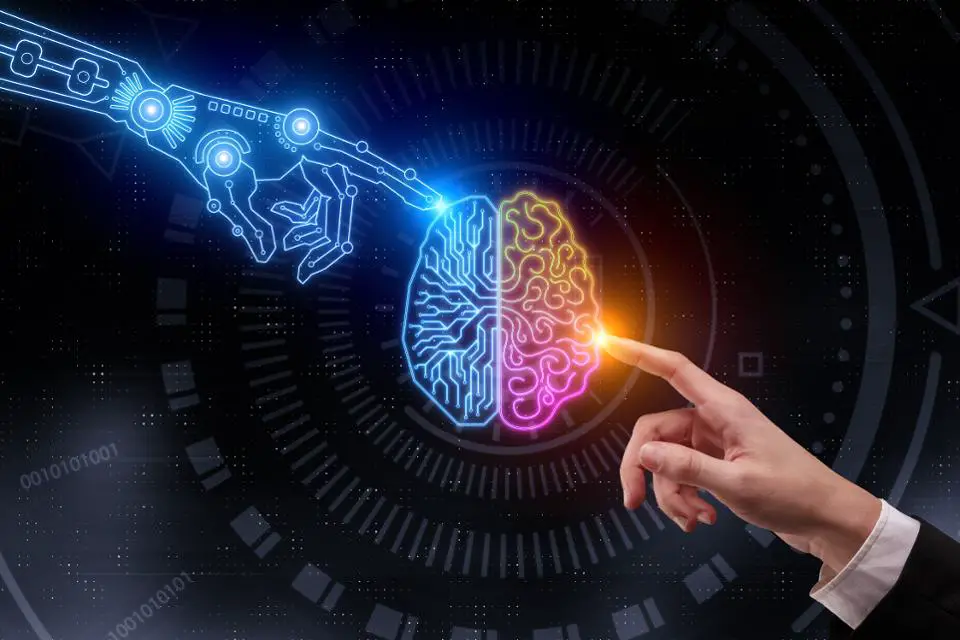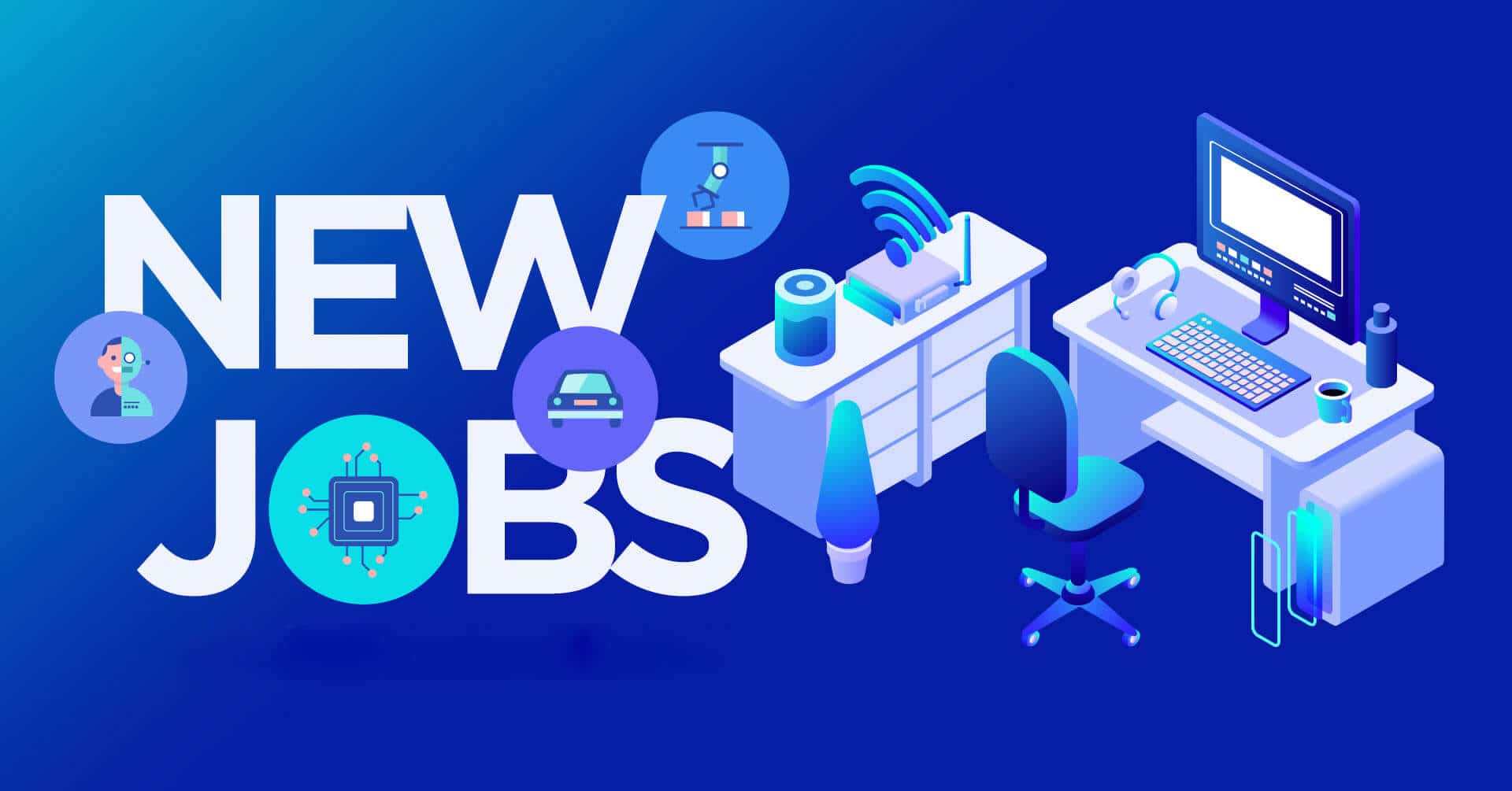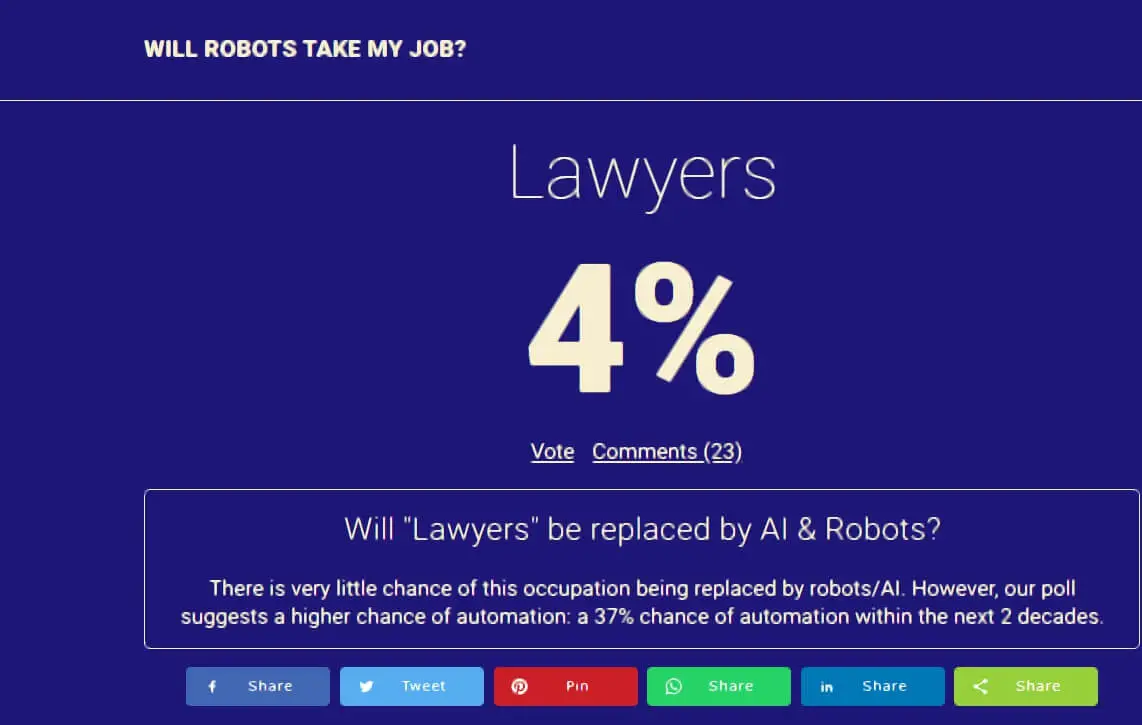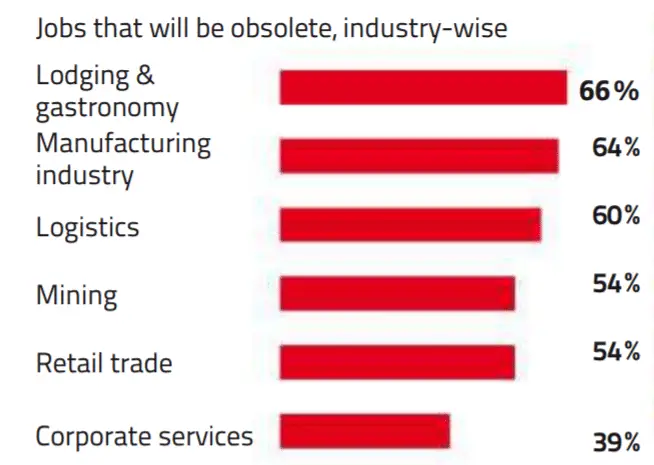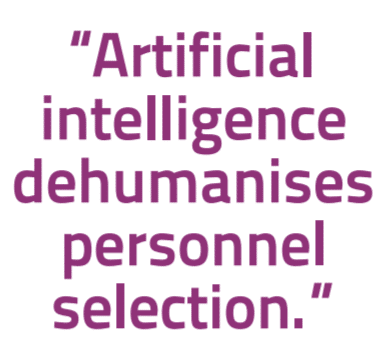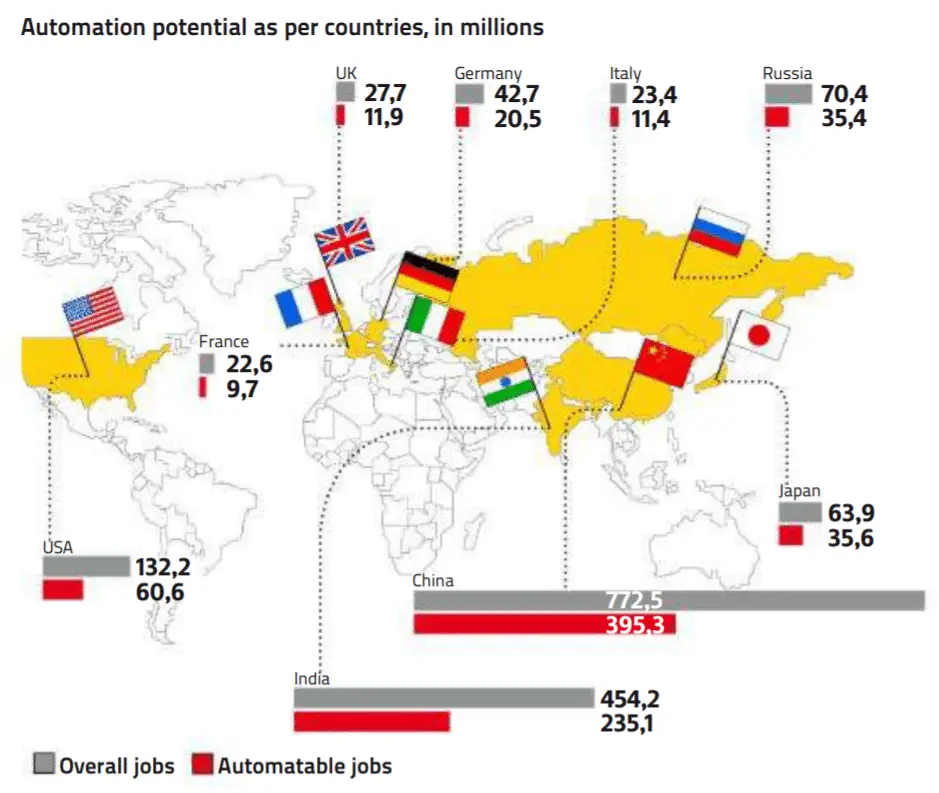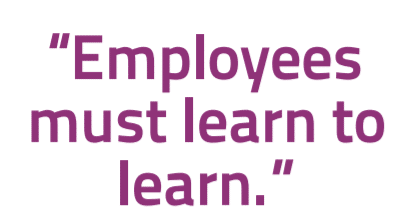AI or Artificial Intelligence is everywhere around us, whether or not you’re paying attention to the advantages and disadvantages of Artificial intelligence. 🤷♂️
From your self-driving car to the chatbots that guide you through a purchase process on a website, from predictive searches Google to Alexa and Siri – it’s all a product of AI.
Through the simulation of human intelligence, AI helps machines to mimic the actions of humans and think like that, too. As a result, machines exhibit ‘thinking” attributes that can be associated with the human mind – all thanks to AI!
This means that it is AI that helps machines to learn and solve problems 🤯. And, the ideal feature of AI is its capability to rationalize the possible chances of reaching a goal and taking the best possible actions to reach that goal – much like our mind does!
Understanding Artificial Intelligence 👀
Quite often, people seem to think of robots – or cars transforming into robots – when they hear of “Artificial Intelligence”. Well, guess what? It’s the big-budget films and science-fiction novels with stories about super-human skills and intelligence, wreaking havoc on earth, which are to blame for it. 🤣
However, the reality is far from this idea. In fact, if you think about it, your life is better and faster because of its dependence on Artificial Intelligence. But, have you ever wondered how AI really works to make the world run smoother? 🤔
To put it simply, AI follows the principle that machines can easily mimic human intelligence to execute tasks, whether it’s absolutely basic or something extremely complex. So, AI works towards the goals of learning, reasoning, and perceiving.
Confused? 🤔 Now Worry, below embedded video will help you to understand What is Artificial Intelligence Exactly?
With the gradual progress of technology, newer benchmarks are established to redefine AI, which means that the older ones are considered outdated. So, the new performances of AI soon get taken for granted in the future versions of it as an inherent feature.
This means that AI is going through a continuous process of evolution. And, as a result, different industries are succeeding in taking advantage of AI. Machines use a combination of mathematics, linguistics, computer science, psychology, and much more!
Applications of Artificial Intelligence 🎭
The advanced applications of AI in every single field have changed the world. The advantages of AI are globally accepted.
But, before you can begin to understand such advantages, you will first need to know a little bit about the applications of AI in different fields.
AI in Healthcare:-
Diagnoses of ailments and medical conditions have become much faster, thanks to the use of AI. If we have to mention one name as an example of this technology, it has to be IBM’s Watson, which can grasp the natural language and respond to questions that are placed in front of it.
It looks at patient data, as well as other sources of data. Then, it forms hypotheses that are presented with what is known as the “confidence scoring schema”.
AI is now capable of assisting both – the doctors, as well as the patients – in multiple ways. It can provide a lab that’s equipped for examination, and assist with representing and cataloging medical information.
It is the tool for developing novel devices that help make decisions and research. It integrates software and medical and cognitive sciences and creates the foundation for future medical communities.
AI in Business:-
AI is used in robotic process automation, which has an essential application in the case of highly repetitive tasks that we normally perform.
Analytics, as well as customer relationship management, i.e. CRM platforms, are integrated with machine learning algorithms, to reveal information for better customer service.
One of the major examples of AI’s application in business is the chatbot. You can see them on most websites, these days.
Some companies, from e-commerce sites to banks, have also started using chatbots on social media platforms. This helps to provide immediate service to their customers, follow up with them, and keep them updated.
AI in Education and Job Sectors:-
Artificial intelligence can automate the grading system. As a result, educators get the gift of time that they can invest in developing the education system.
After efficient assessment of students, it can also adapt to their pace and their needs. As a tool for job position automation, it has grabbed the eyeballs of academics, IT consultancies, etc.
According to Edureka, AI/Machine learning Engineer is Top 10 Jobs in 2020. If you like you can explore this video.
AI in Autonomous Vehicles:-
You must be aware of self-driving cars; these need to understand their environment, for which they use sensors.
They also have a “brain” with which they collect and process information so that they can decide which actions to take. Autonomous vehicles have advanced tools like LIDAR, camera, long-range radar, etc. that.
This is where AI comes into play, in the form of various applications. It can help to Direct a car to a gas station when the fuel level is low.
It can assess traffic conditions and take the car down the quickest route. It can maintain advanced communication with passengers with speech recognition and natural language interfaces.
AI in Exploration of Space:-
Exploring the unknown world of “space” is no mean feat. And, AI feeds on information that it utilizes to explore space.
Machines sent into space are metal-bodied and are resistant nature to fight against the unfriendly atmosphere in space. The process of acclimatization cannot be modified without knowledge, which is where AI offers an efficient solution.
AI in Computers Games:-
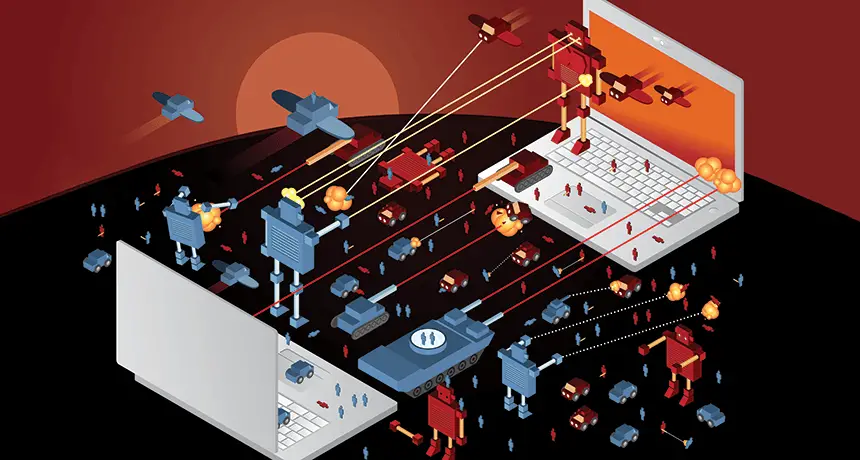
Love computer games? Well, ever wondered who you’re playing against in a single-player mode? It’s a computer.
You are actually interacting with an AI machine when you’re playing alone on your computer or phone. The machine itself plays as an opponent, planning all movements and actions, based on user responses.
Future of AI in Robotics, Cyborg Technology, and more:-
The future of AI will bridge the gap between technology and the human body. It is expected to address the challenges faced by the human body and mind as a result of aging and will allow greater independence. It may help to bring down the number of accidents and handle dangerous situations and disasters.
Shimon Whiteson, a researcher, believes that we will be able to boost our abilities by augmenting ourselves with the computer. That means, cyborg enhancements! This can not only make life more convenient but also serve practical purposes.
Again, Yoky Matsuka of Nest thinks that AI can reduce the limitations of amputees since their brains can communicate with a robotic limb.
Advantages of Artificial Intelligence 👌
Now that you have a brief idea regarding the applications of AI, and it’s future, it’s time for you to understand its advantages.
1. Round-the-Clock Availability
Unlike human beings, machines don’t really need frequent breaks or refreshments. So, you can expect an AI-equipped machine to work for prolonged hours.
Such machines can be programmed to perform their jobs with continuity. There’s no chance of boredom or distraction for them. So, using such machines, you will get consistent service, with no influence from external influences.
2. Daily Application
AI utilizes the power of learning and perceiving for designing automation methods that are common in our lives. The top three necessities in our lives are food, clothing, and shelter.
Do you know what’s the fourth? Probably a smartphone! Well, there’s no denying that everybody has one, and thus, everybody is enjoying the applications of AI, whether or not they know about it.
Think of how your keyboard predicts what you are about to type. 🤔 The suggestions are actually quite helpful in correcting spelling or grammatical errors.
Most of us are using Grammarly to fix our grammar mistakes and you know how it’s working? of course AI. let’s have a look.
This is an example of machine intelligence that is probably one of the most used utilities at work. Even on social media platforms, AI algorithms can identify and detect a user’s face, and even tag him in photographs.
Apart from such everyday utilities, Artificial Intelligence is also an important tool that is effectively used in the finance and banking sectors.
It helps to organize data, and even detects fraudulent activities. Think of the ATMs and system transactions that use smart cards. In fact, even the net banking operations are based on AI.
3. Digital Assistance
Think of the most popular digital ladies, Alexa and Siri! These virtual assistants help you at every step. Or, think of the Google Map, guiding you along the roads and lanes during long drives and city trips.
Almost every single advanced organization has implemented machines to interact with customers in the form of different avatars.
AI machines are fast replacing humans because they are equipped with the power to identify with rational thinking only, which is how they define emotions.
They learn about existing experiences and then make the right program decision after logical ‘thinking”. Apart from sentimental factors or emotions, they are able to help with everything else.
4. Handling Repetitive Jobs
Jobs that are repetitive can be really tedious in nature, causing boredom and monotony for human beings.
Such jobs are easily handled by machines with AI algorithms because these jobs do not need too much of academic, social, or emotional intelligence. You can customize the speed and time of these machines on the basis of calculations of requirements.
In fact, machines can simply think fast and multi-task, providing the best results, even when they have to handle monotonous jobs.
Besides repetitive tasks, machine intelligence is also capable of handling dangerous tasks that can cause human injury. It is possible to adjust their parameters, much to the advantage of any company.
5. Assisting Medical Science
One of the greatest advantages of AI is its applications in the medical field. Today’s medical world relies heavily on AI. Assessment of patients’ data has become much faster for doctors, thanks to AI.
As a result, their decision-making and intimation of risk factors to the patient parties with the help of healthcare devices has become easier.
It helps in understanding the side effects of medicines and then provides personalized digital care. One of the greatest medical innovations is the artificial surgery simulator which is used by professionals with efficiency.
Currently, medical software has made it easier to detect and monitor neurological disorders. AI software simulates the functions of our brain.
Even mental health treatment has progressed, thanks to robotics. AI can help people to detect and come out of depression and function actively.
The medical industry also utilizes the application of AI in radiosurgery. This makes it possible for surgeons to operate on tumors without causing damage to the tissues in the surrounding areas.
6. Hazardous Exploration
The fascinating advancements in technological development, using AI, has enhanced the science of robotics to process the procedures of mining and other fuel explorations.
Complex machines have a clear advantage over humans because machines can overcome the limitations of human beings. It is obvious that machines will not be affected in the same way as humans in hazardous situations.
They can replace humans in such risky work situations in which innocent lives can be harmed. Often, such processes cannot be avoided, and in such cases, machine intelligence can help to reach the execution level of humans.
They can even achieve higher levels of accuracy with greater responsibility, even in difficult situations. Plus, they do not get tired.
7. Reduction of Error
One of the biggest advantages of AI is the reduction of errors and thus achieving greater accuracy with more precision. And, this can be applied in various fields.
After all, this is machine intelligence we are talking about! Naturally, you can rule out the possibility of any human error, when there’s AI involved. It can bring down the number, as well as the severity, of errors.
8. Quicker and More Logical Decision-Making
Think of your chess game with the computer. They always play faster, and win! AI algorithms help machines to make decisions much faster than humans; they then move on to carrying out the actions quicker.
Think about it: we analyze multiple factors when we make a decision; and, it’s not always practical, as we let emotions cloud our judgments. But AI-powered machines are all logical.
9. Faster Communications
AI’s capabilities to understand different human languages and to translate smoothly make communication much easier and more effective.
In the past, people from different parts of the world trying to communicate with each other needed a translator or interpreter. But that is hardly the case now! AI can now process natural languages and effortlessly translate from one language to another.
10. Creation of New jobs
AI, as a field of study, is enormous and new and full of potential. It is an ever-changing technology and an ever-growing industry. And, it has created new jobs ever since its inception.
It has opened new opportunities for engineers and programmers who have taken up machine learning. In fact, back in 2018, reports suggested that by 2022, AI would create 58 million new jobs!
11. Learning by AI
AI, as the name suggests, is ‘intelligent’. This is mainly because it can learn from data, and incorporate it in its actions and decisions.
Traditional programs can perform incredible tasks, but they cannot adapt to new situations or challenges. So, AI is exceptionally advantageous in that way. It can adapt to new situations as it learns from experiences.
Disadvantages of Artificial intelligence 🥶
Remember the essays you used to write in school about the “curses of science”? Well, let’s just say that the same applies to AI. Here are some of the obvious and not-so-obvious disadvantages of AI.
1. Job Loss
Yes, AI has definitely created new jobs, and will possibly create more; but it has also led to a loss of jobs. It has started taking over the menial job areas in customer care, digital assistance, hospitality, etc.
And currently, the capabilities are only expected to flourish; this means that it will eventually replace millions of human beings in different industries at various levels.
There is a site named https://willrobotstakemyjob.com/ that can tell you, your job field is secure or no due to AI.
Just enter your work profession, it will give you your job loss percentage.
2. Existential Risk
Thanks to AI replacing humans in job sectors, along with sci-fi movies about total robot domination over the world, we are all left asking one question – will AI machines eventually make humans extinct? Yes, AI does threaten human existence.
We can only hope that AI machines won’t make humans extinct. But it does have the potential to be intelligent enough to do so, in the distant future.
3. Not 100% Accurate
Yes, it’s true that humans make errors; but it’s also true that AI is not completely error-free. However, the percentage of errors is significantly lower in the case of AI systems.
It certainly isn’t 100% accurate, as we often tend to believe. Since it is deployed in areas that deal with sensitive data, like military or scientific research. So, even the smallest error can be fatal.
4. Expensive Development Process
AI systems are extremely expensive to develop. Why wouldn’t it be? After all, it is the process of making machines intelligent enough to think logically, and put two and two together – and use the final result in super-advanced situations.
So, governments and private corporations have spent billions of dollars in the development of AI systems.
5. No Originality or Creativity
AI systems are currently incapable of originality or creativity. While AI has been deployed in creative fields, it still lacks what is needed to create something that humans can connect with.
Humans can create something from scratch, out of thoughts and emotions; but, AI can only put data together for new knowledge and not a new piece of art.
Let’s take into consideration Ai-Da, the first robot artist of the world. All that AI systems are capable of is the transformation of a creative work to create a new version of it.
Many other systems like Ai-Da have demonstrated a lack of originality. Naturally, it has raised questions about the level of intelligence of AI, at least for now.
6. Incapable of Highly Intelligent Tasks
Yes, AI is extremely intelligent and has come a long way since its inception. It can carry out intelligent tasks quickly and easily. However, it is still incapable of efficient performance when the degree of intelligence required is too high.
Even Google AI is no more intelligent than a 6-year old. So, it is not yet capable of matching a human’s standards of perception, reasoning, and execution.
7. Unexplained Acts of Intelligence
Albert Einstein said, “If you can’t explain it simply, you don’t understand it well enough.” True enough – it takes intelligence to explain yourself, and explaining its tasks is something that AI fails at.
It can carry out intelligent tasks; however, there is no explanation as to why and how AI systems perform the process. This raises questions about its ability to apply such processes in other tasks.
8. Risks of Destructiveness
Just like any branch of science, AI, too, can be turned into a weapon of destruction in the hands of the wrong people in the position of power.
Whether it is waging war on an entire country or bringing down the share market, Ai can make things possible quickly. From autonomous strike drones to robot soldiers, AI is capable of it all.
9. Loss of Skills
You must have understood that AI can take away jobs. But if you think about it, it can also take away skills in many areas. As we start depending on AI for basic functions, we stop paying attention to learning skills.
Take for example the act of writing. AI-powered article generators cannot just churn out new pieces of writing. They can also eventually wipe out the interest and ability to write.
As mentioned earlier, it might take a while for AI systems to get to the point where skills are completely wiped out. It won’t possibly happen in our lifetime.
But it still hampers some basic areas of knowledge. For instance, if you use spelling-checkers and auto-correctors regularly while typing, writing a letter using a pen and paper might reveal how these have affected your eye for details.
10. Limitation within Database
You know how AI uses available data and experiences to learn and develop new abilities. So, we can look at this in another way – that AI’s capabilities are limited to the available database.
This means that AI cannot operate or ‘think’ outside the box of its training dataset. That is why we are currently dealing with Narrow AIs only, which can only perform one task.
11. Inability to Recognize Sentimental Factor
AI machines can only recognize human intelligence in terms of knowledge. They do not identify sentimental or emotional factors.
And, this can be problematic, especially when an AI system is deployed in communications with people. Customers can feel dissatisfied when their emotions are identified. That is where human intervention becomes necessary.
How likely is it that a robot will take my job?
Those who wish to become taxi drivers, secretaries or parcel carriers in today’s world should think twice about this. Sooner or later, such professions will fall victim to digitalization. The work is too stereotypical for a machine to be unable to do.
Another job that is no longer suitable for being a dream profession is that of a recruiter. For not only are work processes being redesigned, but also the procedures for finding and occupying job vacancies – it has long since become digitalized.
Personnel market: massive turnovers
Job portals mark the beginning of this development, which brought printed job advertisements to the Internet.
Subsequently, networks such as LinkedIn and Xing were established, whose members network with each other, maintain professional contacts and present themselves. The rapidly growing market is lucrative – the turnover in the personnel market is around RM3 trillion Euros all over the world, after all.
Google believes that a future for this market exists. In 2017, the search engine giant from Mountain View established its own job portal, Google Hire. This portal is supposed to simplify the recruitment process for companies.
Here, companies can manage candidate profiles, including contact information, resumes and calendar dates. Even companies are feeling the pressure to change, with 40 percent of firms across the world planning the fundamental modernization of their HR systems.
There is definite hope for cost-saving as recruitment agencies willingly pocket up to 30 percent of the annual salary as commission.
Furthermore, AI-based systems are attractive with their promises of an increased overview and quick transparency even for a massive number of applications, where they track the success of job marketing campaigns, for instance.
And then there is the matching process. An AI-based recruitment agency can match thousands of skills, professional levels and locations with the millions of advertisements, which the aggregator records on a daily basis – no human resources department in the world is capable of doing this.
Meanwhile, AI systems take mere seconds to recommend the most suited applicant upon the announcement of a job offer – including potential hits from the company itself. The employment agency sometimes knows that a candidate is looking for a new job even before the candidate himself knows of this.
How likely is it that a robot will take my job?
There is some website like https://willrobotstakemyjob.com/ which will give your probability of losing your job which is also run by AI in the background like in my case I am Senior network security engineer so lets the search for my job.
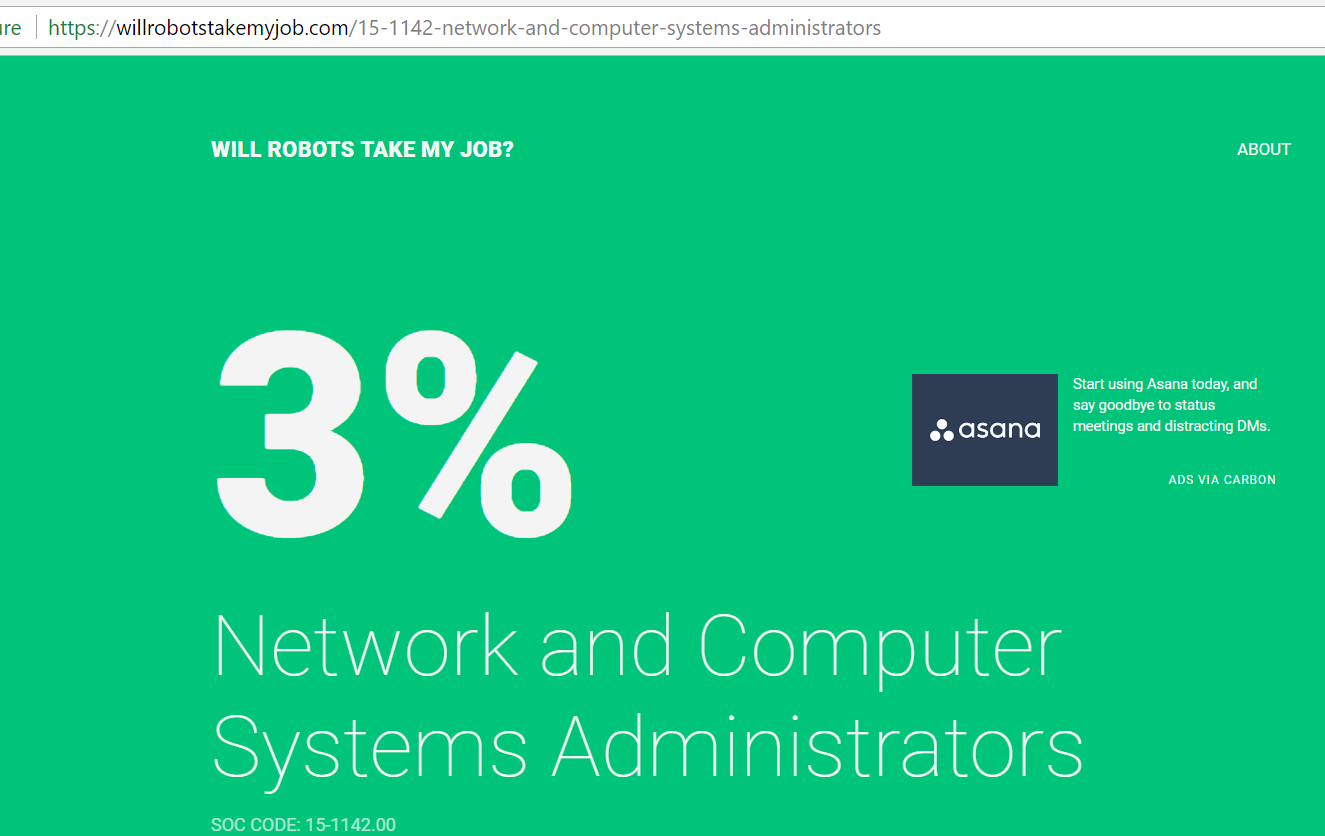
Robots are looking for robots? No way!
Are humans now being universally replaced by machines and programs that adhere to such obscure criteria? In the end, will robots be the only ones remaining to select and deal with other robots, thus creating more robots?
Bleak prognoses by university and company researchers warn against a loss of up to half of the human jobs in the next 20 years in the USA alone.
However, most of the investigations only describe automation effects, which may not be compared with effects on employment as per a metastudy by the Mannheim Centre for European Economic Research (ZEW).
Even if automation might lead to a loss of jobs initially, the shift will also generate new jobs. It will replace a lot of monotonous areas of activity in the low-wage sector, and it will also turn around or even completely wipe out jobs in the fields of finance, management, logistics, shipping and production.
But at the same time, as new technologies are being developed constantly and rapidly, high qualifications and lifelong further training will play a much more important role.
The philosopher of technology from TU Munich, Klaus Mainzer, expects that continuous learning will become an inseparable part of the new professional life due to constant technological innovations. ‘‘The qualification profile will be the key issue of the future.
Employees must learn to learn,” he commented. In light of the increasingly complex
algorithms, even Mainzer poses the question about criteria, based on which the programs process the assessment of the employee performance. Until now, these standards were determined by humans.
Yet, by virtue of bigger data quantities and more practical examples, self-learning algorithms could optimize such decisions quicker than humans. ‘‘Mind you, it will then become critical.
We must then take a closer look at the standards and criteria beforehand, according to which the optimization takes place,” warned Mainzer.
Is the human defeating the machine anyway?
Stefan Fischer, from the psychological human resources consulting firm in Cologne, Personal profile, is concerned about this development as well. With regard to artificial competitors, the certified psychologist sees both good and bad.
In his opinion, there is no doubt that AI systems can offer good models to gain a first market overview, where pure manpower would not be enough to deal with huge numbers of applications. However, the final fit of the applicant can only be determined from a personal interview.
In particular, Fischer works in the field of public employers. As compared with the salaries paid in the private market, they have huge difficulties when it comes to finding qualified personnel.
In respect hereof, they anticipate only one trend, which is increasingly making an impact on the private job market as well: Shortage of specialists. As far as their job is concerned, employees are ever so frequently spoilt for choice.
This is why Fischer is doubtful whether the current trend towards ‘‘dehumanised selection of personnel” is the ideal solution for the industry. The way the potential employer presents himself to the interested applicant would play a very significant role for potential employees.
Addressing the potential employee individually would be a substantial success factor, according to Fischer. Job aspirants would increasingly decide for or against an offer based on a series of ”soft” factors.
These framework conditions would include the question of a work-life balance as well as the atmospheric impression of how an applicant would be treated as a person. ‘‘A contact engineered to the core by an algorithm seems rather horrifying,” he said.
Conclusion
To put it simply, AI has the intelligence of a computer and the logical reasoning of human beings, which allows it to learn from existing information and experiences and improve itself to adapt to situations and changes.
But as of now, we are only stuck with systems that have limited learning capabilities and no originality. That is why AI still needs a human touch.
Clearly, there’s plenty of room for the improvement of AI systems and there’s no telling, as of yet, how long it will take to overcome the disadvantages of AI.
But, together with other technological advancements and human logic, the advantages of Artificial Intelligence can make operations smoother in many industries.

























